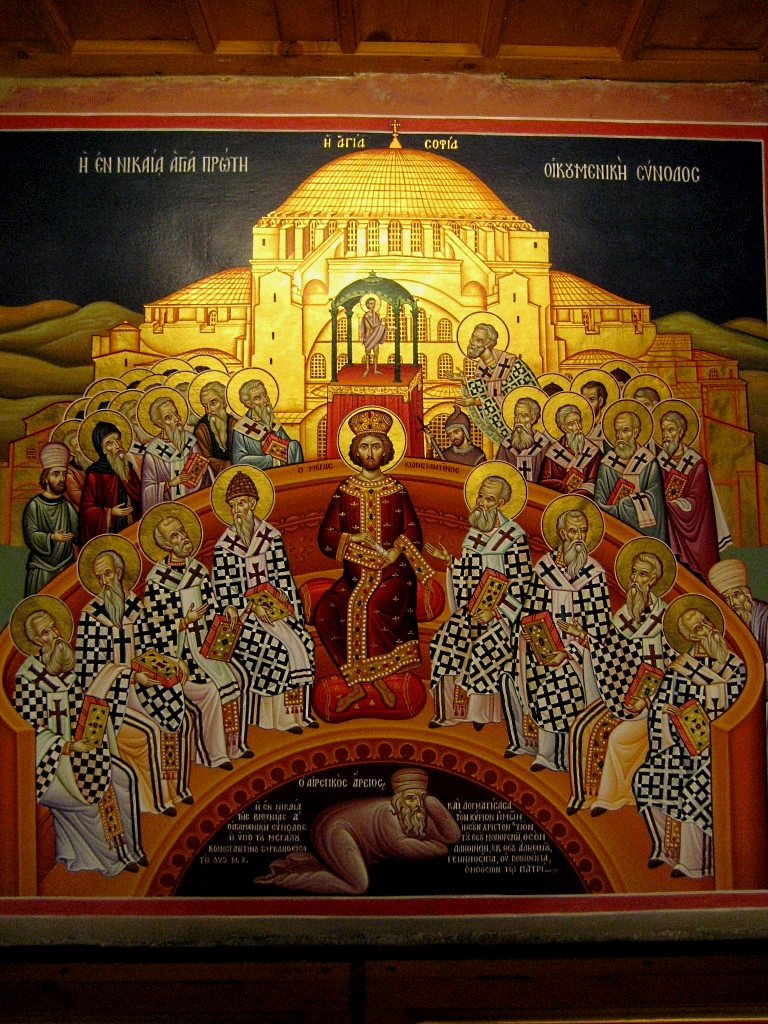Lumpenproletariat
Veteran Member
- Joined
- May 9, 2014
- Messages
- 2,714
- Basic Beliefs
- ---- "Just the facts, ma'am, just the facts."
Further confirmation that
Jesus did nothing noteworthy in history
How about Zoroaster as a possible case. The historical record tells us very little about him that is definite. Maybe he comes close to being similar?
No, not even Zoroaster is an example. He is recognized by all as a religious founder who originated the Persian religious traditions of the period from around 500-1000 BC and later. He's famous enough to be called a "somebody" in the written record, being credited by everyone as a founder of a new religion of Persia, with virtually no dispute of this among scholars. So he is distinguished as someone who did something no one else did. I.e., he's by far the most well-recognized founder of a new religion in Persia during that period. Nothing like this can be said of Jesus, who maybe is recognized by some as a "founder" of sorts, but definitely not by most scholars, who are divided as to what he really did, though they place him in the 1st century and have much more writings concerning him than they have about the Zoroaster person historically.
So even an obscure figure like Zoroaster was a somebody who is distinguished in history as having accomplished something identified and making him unique in history, to explain why he is in the historical record. But we have nothing about Jesus to distinguish him from all the other prophets and sages and messiahs etc.
And though obviously there are fictions then and at every other time, the writings of that time also contain facts. It's a fact that Jesus existed as a real 1st-century person, as Zoroaster existed, more obscurely, as a person probably back in the period of 1000-500 BC (possibly earlier) in Persia. Both these are historical persons about whom we don't know much. But they are fact, and we know what distinguishes Zoroaster as a factual person in history, while we do not know what distinguishes Jesus as a person in history, i.e., what is noteworthy about him.
I said above what distinguishes Zoroaster, though there's much that's unknown about him. But in the case of Jesus we do NOT know what distinguishes him historically if he did not do the miracle acts. I.e., there's NO AGREEMENT as to what he did, as there is agreement about what Zoroaster did.
Nothing you're saying here answers the question: Who is another person in the historical record who was really a NOBODY? who did nothing noteworthy that we can agree on? Jesus is such a person, a nobody, if he did not do the miracle acts described in the 1st-century accounts we have.
The question again: Is there any other such case, of someone made into someone noteworthy in the accounts, and yet who was really a NOBODY? i.e., was really so minor in importance that you cannot name anything that distinguishes him from anyone else, such as we can name what distinguishes Zoroaster?
Assuming Jesus did not do the miracle acts and therefore is not distinguished in history as having done anything noteworthy, is there any other example of such a person, noted in the written record from history, who did nothing noteworthy to distinguish him from anyone else?
And by offering no example, you are acknowledging there is no other such case. Jesus is the only person in the written record of history who did nothing noteworthy. You're agreeing that he is the only such case of this.
So Paul is recognized for what he did that is noteworthy. But the historical Jesus is not recognized for anything noteworthy in history by any significant number, outside believers who all explain him differently, giving only theological explanations, not historical facts, to distinguish him (other than the miracle acts).
He was a nobody (assuming he didn't do the miracle acts) who did nothing to distinguish him historically. You're agreeing that he's the only case of someone included in the historical record as if he did something noteworthy and yet really did nothing noteworthy (if he did not do the miracle acts).
So you're agreeing that he's the only case of someone in the historical written record who actually did NOTHING noteworthy. You can't name anything he did that distinguishes him, and even emphasize vehemently that he did nothing to deserve any mention in the written record, such as Zoroaster and all the others did do something noteworthy.
Thanks for helping me to make my point. Possibly even saying it better than I did.
Jesus did nothing noteworthy in history
Right. You're agreeing with me. Though I believe Jesus did do something noteworthy (the miracle acts described in the accounts) and you believe he did not. But otherwise we agree. I.e., assuming he did not do the noteworthy acts he is said to have done, then he is a nobody who did nothing special in history. And yet he has been made into a somebody in the historical record. What's another example of this? of someone noted in the historical record who really did nothing noteworthy? You can't offer any other example of this.I have given my view on why Jesus became prevalent several times. It has nothing to do with anything he said or did.
How about Zoroaster as a possible case. The historical record tells us very little about him that is definite. Maybe he comes close to being similar?
No, not even Zoroaster is an example. He is recognized by all as a religious founder who originated the Persian religious traditions of the period from around 500-1000 BC and later. He's famous enough to be called a "somebody" in the written record, being credited by everyone as a founder of a new religion of Persia, with virtually no dispute of this among scholars. So he is distinguished as someone who did something no one else did. I.e., he's by far the most well-recognized founder of a new religion in Persia during that period. Nothing like this can be said of Jesus, who maybe is recognized by some as a "founder" of sorts, but definitely not by most scholars, who are divided as to what he really did, though they place him in the 1st century and have much more writings concerning him than they have about the Zoroaster person historically.
So even an obscure figure like Zoroaster was a somebody who is distinguished in history as having accomplished something identified and making him unique in history, to explain why he is in the historical record. But we have nothing about Jesus to distinguish him from all the other prophets and sages and messiahs etc.
Of course there are fictions. But no more 2000 years ago than 2100 or 2200 or 2300 years ago. No more in the period of Jesus (or just before him) than any other period.It is about cultural processes that have existed since the first human civilizations.
2000 years ago illiteracy and superstition were the norm. Superstitious people glomed onto a myth created as fiction.
And though obviously there are fictions then and at every other time, the writings of that time also contain facts. It's a fact that Jesus existed as a real 1st-century person, as Zoroaster existed, more obscurely, as a person probably back in the period of 1000-500 BC (possibly earlier) in Persia. Both these are historical persons about whom we don't know much. But they are fact, and we know what distinguishes Zoroaster as a factual person in history, while we do not know what distinguishes Jesus as a person in history, i.e., what is noteworthy about him.
I said above what distinguishes Zoroaster, though there's much that's unknown about him. But in the case of Jesus we do NOT know what distinguishes him historically if he did not do the miracle acts. I.e., there's NO AGREEMENT as to what he did, as there is agreement about what Zoroaster did.
Nothing you're saying here answers the question: Who is another person in the historical record who was really a NOBODY? who did nothing noteworthy that we can agree on? Jesus is such a person, a nobody, if he did not do the miracle acts described in the 1st-century accounts we have.
The question again: Is there any other such case, of someone made into someone noteworthy in the accounts, and yet who was really a NOBODY? i.e., was really so minor in importance that you cannot name anything that distinguishes him from anyone else, such as we can name what distinguishes Zoroaster?
Much has been covered. I'm not claiming nothing has been covered. I'm just asking this question which has not been answered. And the question, again, is:As has been covered on the forum, Christianity . . .
Assuming Jesus did not do the miracle acts and therefore is not distinguished in history as having done anything noteworthy, is there any other example of such a person, noted in the written record from history, who did nothing noteworthy to distinguish him from anyone else?
And by offering no example, you are acknowledging there is no other such case. Jesus is the only person in the written record of history who did nothing noteworthy. You're agreeing that he is the only such case of this.
But the Galilean Jesus of about 30 AD who was crucified is not recognized as the founder of Christianity, by a significant number of people, especially scholars. He is not recognized as having done that or anything else noteworthy which distinguishes him from others.Christianity evolved from a heretic group of Jews to a gentile Christianity as a syncretic mix of multiple pagan practices and views.
Yes, there's another example of a person in the historical record who we can identify as to his noteworthiness. He is the one who popularized Christianity among Gentiles, or rather, he is the only one we know of, who left a "paper trail" behind him, to identify him as a promoter of Christianity among Gentiles early, beginning in the 30s AD or by 50 AD at the latest.It had little to do with a Jew named Jesus who lived as a Jew. What you call Christianity should be called Paulism.
So Paul is recognized for what he did that is noteworthy. But the historical Jesus is not recognized for anything noteworthy in history by any significant number, outside believers who all explain him differently, giving only theological explanations, not historical facts, to distinguish him (other than the miracle acts).
Yes, you're agreeing with me. That's close to what I said.Christianity became political and about power. The RCC was Christianity until the Reformation.
As at the beginning today in the USA Christianity is all about political power.
Hinduism is the oldest system and exists today. Taoism dates to the 3rd or 4th century BCE.
People still talk about and study Roman leaders, Greek philosophers and literature, and Egypt.
You may think Jesus is special and unique, but it is not really true. One of many mythologies.
He was a nobody (assuming he didn't do the miracle acts) who did nothing to distinguish him historically. You're agreeing that he's the only case of someone included in the historical record as if he did something noteworthy and yet really did nothing noteworthy (if he did not do the miracle acts).
So you're agreeing that he's the only case of someone in the historical written record who actually did NOTHING noteworthy. You can't name anything he did that distinguishes him, and even emphasize vehemently that he did nothing to deserve any mention in the written record, such as Zoroaster and all the others did do something noteworthy.
Thanks for helping me to make my point. Possibly even saying it better than I did.


